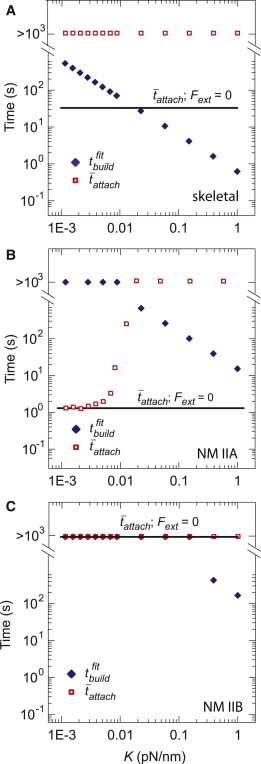Figure 6.

Myosin isoforms are predicted to display varying types of behavior on elastic substrates due to differences in tattach and tbuild. (A) For motor parameters that correspond to skeletal muscle myosin, the unloaded attach (solid line) was comparable to or larger than (diamonds), producing values of attach on spring-loaded filaments (open squares) longer than the simulation time of 1000 s for all values of K. (B) For parameters representative of nonmuscle myosin IIA, attach transitions from values much less than to values much greater than at a threshold value of K, leading to a sharp increase in effective force production. (C) For parameters representative of a nonmuscle myosin IIB type motor, both attach and are large for all values of K. For all panels, the default parameters in Table 1 and isoform-specific parameters from Table 2 were used. Values of Nheads: (A) 500, (B) 50, and (C) 50. Data points for attach are average values over 15 simulations of 1000 s, and was calculated using a fit to the scaling relationship in Fig. 4. To see this figure in color, go online.
